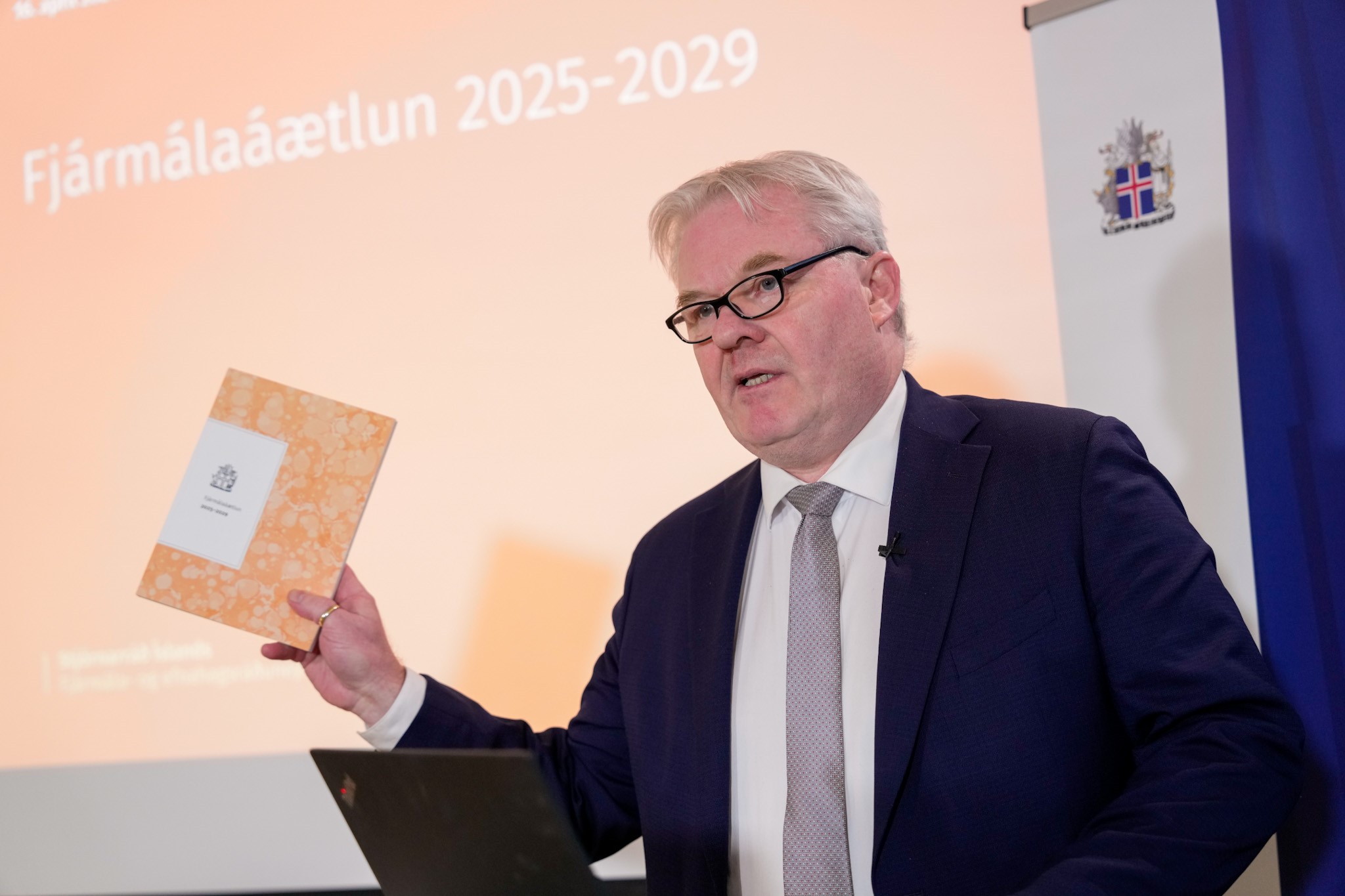Strong position protected and contributed to the reduction of inflation
During the period of the government‘s Fiscal Strategy Plan for 2025-2029, presented today by Sigurður Ingi Jóhannsson, Minister of Finance and Economic Affairs, emphasis will be placed on moderate expenditure growth in order to protect the economy’s strong position, help lower inflation and create conditions for lowering interest rates. As inflation declines, the wage increases negotiated in collective agreements yield increased purchasing power.
Over the past decade, purchasing power growth has far outpaced all other Western European countries. The policies set out in the Fiscal Strategy Plan lay the foundation for continued growth in purchasing power.
The growth in living standards in recent years goes beyond the growth of purchasing power. For instance, household debt has rarely in recent decades been lower in proportion to disposable income.
In the clear strategy outlined in the new fiscal strategy plan, which lays the foundations for continued purchasing power growth, three things are most important.
First, a tight fiscal stand must be maintained. The Treasury deficit will thus halve next year, from 49 ma.kr. to 25 ma.kr., turning into a surplus in 2028.
As before, expenditure on health, social and social security is the most important during the period of this Fiscal Strategy Plan; about half of total government expenditure is spent on these areas. There is no general restraint requirement on health and welfare and expenditure on these areas will continue to be prioritized; it will increase by 80 ma.kr. between 2024 and 2029, corresponding to an increase of nearly 12% in real terms.
The government has agreed to get a handle on expenditure on foreigners. In 2022, expenditure in that area nearly doubled from 2021. The same thing happened in 2023. Expenditures in these areas have more than tripled in real terms since 2017.
Although the earthquakes in Grindavík and the government’s measures announced in tandem with collective bargaining agreements have led to fairly extensive expenditure, the Treasury balance is expected to remain stable between 2023 and 2024. This is an indication of increased stability compared to large fluctuations in recent years. During the period of the Fiscal Strategy Plan, new expenditures will be slower and met by restraint in other operations.
Additional efforts will be put into improving the efficiency of the public sector and the institutional structure for the operation of public services will be reassessed. There is great potential in making better use of resources and making institutions more capable in providing services. Great progress has already been made in increasing productivity through the Digital Iceland workstream. District administrations, for instance, have managed to increase the speed of service delivery markedly with increased digitisation at the same time as streamlining operations.
Central and general government expenditure will therefore grow moderately this year and during the period of the Fiscal Strategy Plan. With the slow pace of expenditure growth, the aim is for the ratio of total general government expenditure to GDP, which this year will amount to about 44%, to be just under 41% by the end of the period. In this way, public finances facilitate the Central Bank's task of promoting price stability.
Second, the authorities will undertake the actions announced in parallel with the conclusion of collective bargaining agreements. The measures increase households' disposable income, with particular emphasis on housing development, housing support and families with children. Thanks to modest growth in other expenditures and some continued growth in government revenues, measures in support of collective bargaining will be funded in the coming years.
Thirdly, the authorities place great emphasis on ensuring that collective agreements in the public labour market are compatible with the overall responsible policies established in the private labour market. It is important that they are long-term contracts that reduce uncertainty and support the reduction of inflation. Only in this way do conditions arise for a reduction in interest rates.

